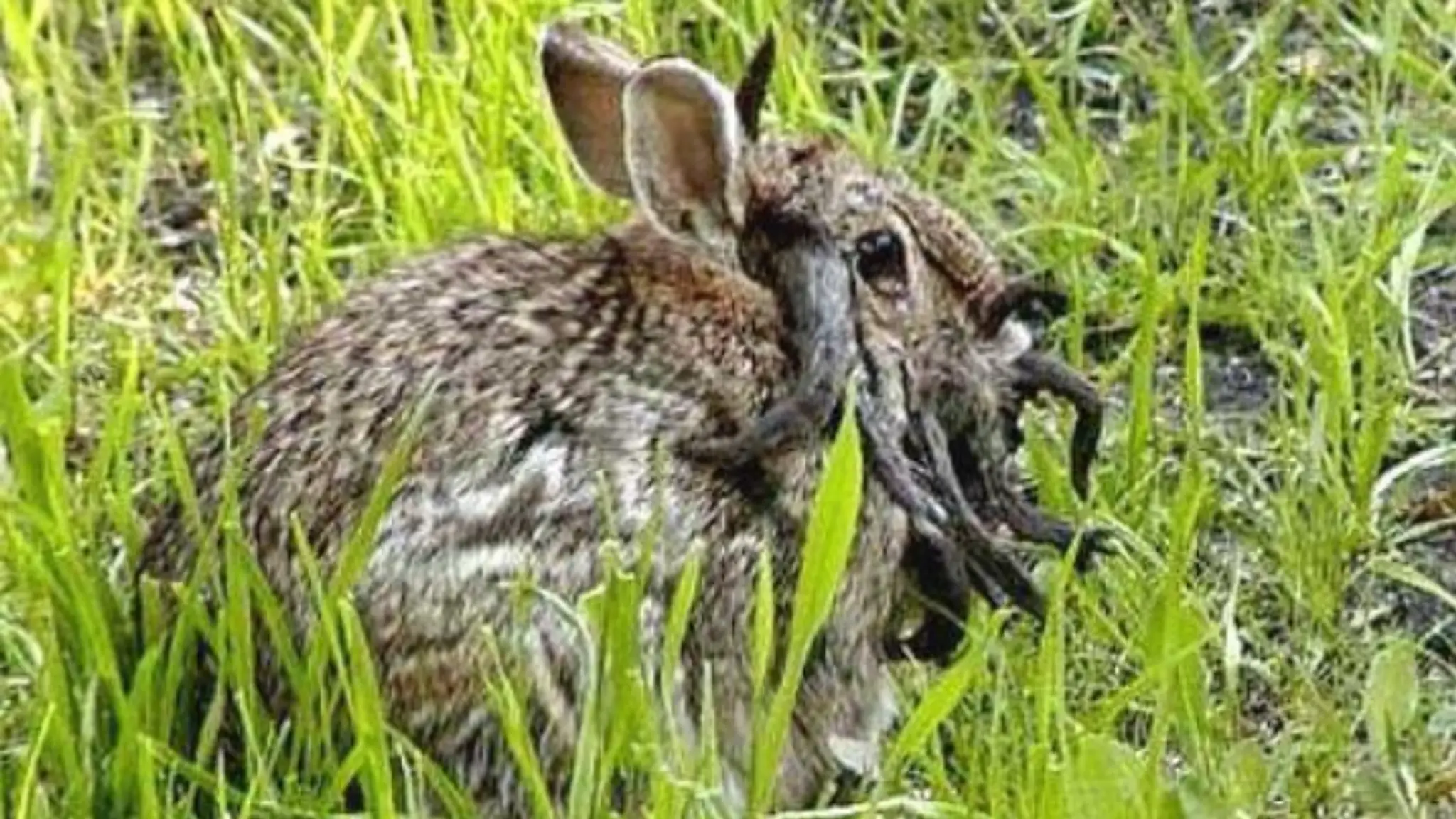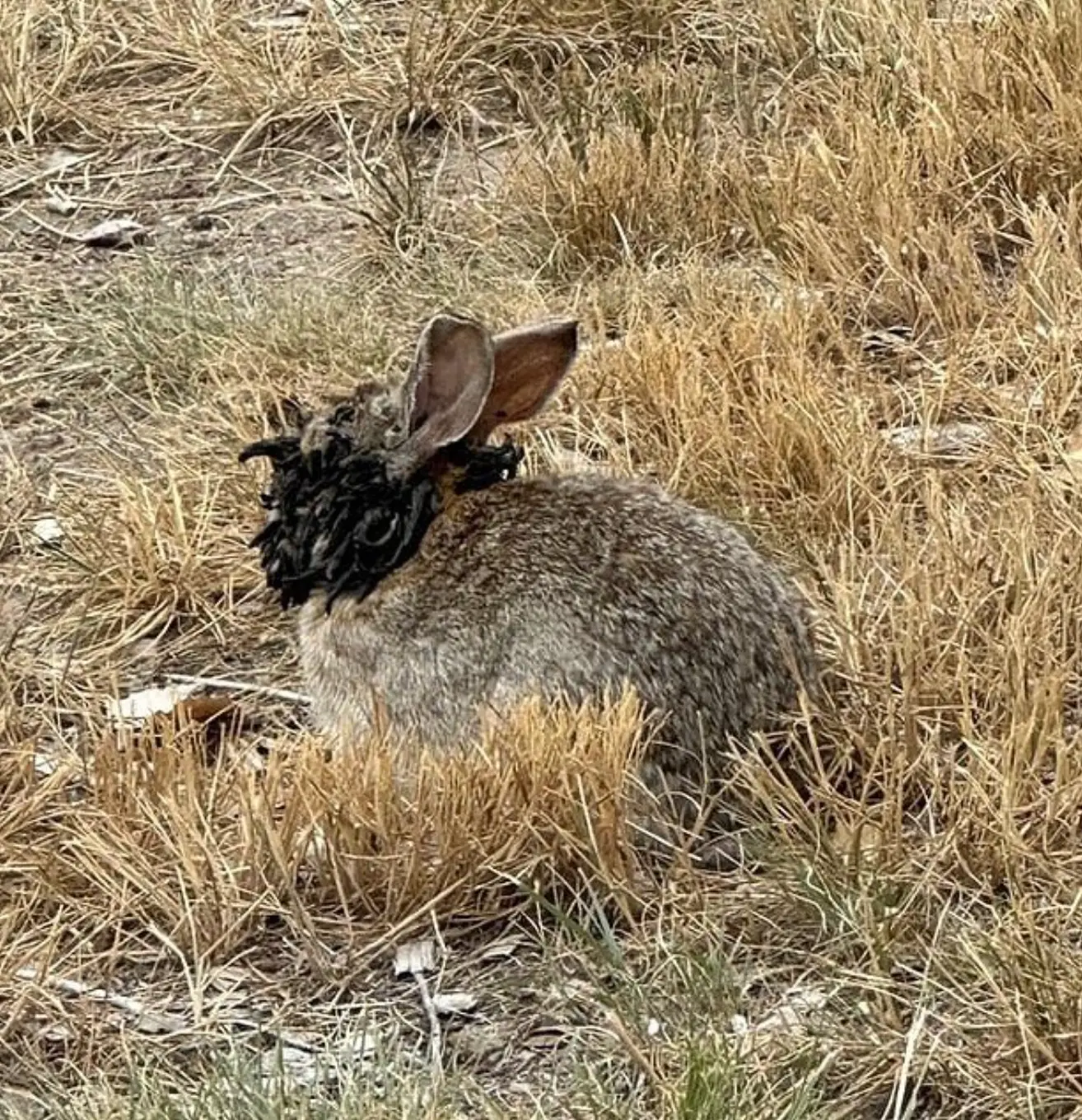
Experts and local officials have issued a warning to anyone who encounters a 'zombie rabbit' on their travels.
People have been left concerned after spotting the poor bunnies in Fort Collins, Colorado, with strange, gnarled black growths sticking out of their face and neck.
Alarmed citizens have been sharing pictures of the wild rabbits, and are dubbing them 'Frankenstein' or 'zombie' bunnies.
One person wrote on X (formerly Twitter): "The zombie apocalypse is here!" while another shared a snap that was captioned: "Rabbits in Colorado spotted with tentacle-like growths on their heads."
Advert
Others called them 'Cthulhu bunnies', after the fictional horror character by H.P. Lovecraft who has tentacles for a face, with another unnamed resident describing them as a 'scabby-ish-looking growth over their face.'
Local resident Susan Mansfield described the growths to WLBT3 as looking like 'black quills or black toothpicks sticking out all around his or her mouth'.
Official warns against approaching 'Frankenstein' rabbits

While it may be distressing to look at, local officials have issued a warning for people not to get too close to the afflicted bunnies.
According to Pet MD, growths are caused by a virus called the cottontail cutaneous papilloma virus, a.k.a the shope papilloma virus, and is transmitted by infected mosquitos or ticks.
While it isn't harmful to humans, officials from Colorado Parks and Wildlife (CPW) are warning people to stay away from the infected rabbits and not to touch them.
CPW spokesperson Kara Van Hoose told KDVR: "There’s no overt concern needed for pet owners.
"We would just say to keep those wildlife principles in mind when you do have them out: Keep them on leash, keep them away from wild animals just in case, but it is not something necessarily we see transferred from rabbits to dogs.”
They also noted that the rabbits often fight the virus by themselves without human intervention.
Vet's warning about pet rabbits catching shope papilloma virus

One expert, Dr. Sean McCormack, told UNILAD how to keep pets safe, but it can be difficult to protect pet rabbits, especially those living outdoors.
He explained: "Even indoor rabbits could also get infected with flying insects coming into the home, so mosquito repellents or traps and door fly screens are a good idea in the home to prevent exposure to biting insects."
If you think a pet rabbit is infected, he advises 'temporary isolation' is best 'until a vet visit confirms whether cottontail rabbit papillomavirus (CRPV) is suspected'.
There is no vaccine for the virus, and surgery is the only treatment to remove them.
He added: "It’s important to say that CRPV has not been found in the UK or Europe, it is a disease of North American wild rabbit species like Cottontails and Brush rabbits that can infect domestic rabbits too."